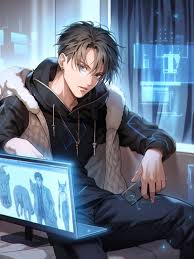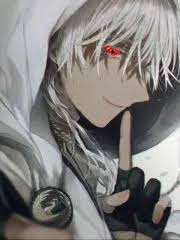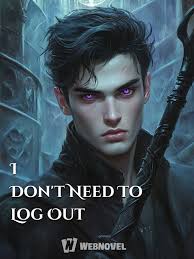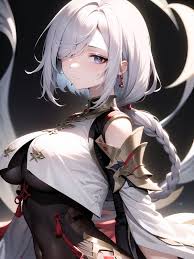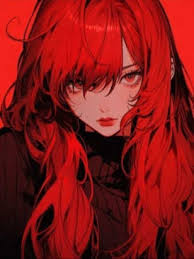The Story in 3 Sentences
A 35-year-old martial arts master named Kurogami Ichiro dies saving a child in a world where his lifelong dedication to combat earned him no recognition or legacy.
Reincarnated into a 15-year-old body in a parallel world where martial prowess is celebrated and monsters threaten humanity, he gains access to a mysterious Martial Arts System that promises to elevate his skills beyond mortal limits.
As Ichiro navigates school rivalries, hidden conspiracies, and escalating global threats, he must reconcile his past discipline with the chaotic opportunities of his new life while uncovering the true nature of the system guiding him.
Why It Stands Out
1. A System That Feels Like a Shadow, Not a Crutch
Unlike typical progression systems that spoon-feed power, the Martial Arts System here evolves ambiguously—offering rewards that demand interpretation, sacrifice, and strategic thinking rather than automatic upgrades, making every stat point feel earned through grit, not just grinding.
2. Reincarnation Without Amnesia, But With Identity Crisis
Ichiro remembers every bruise, failure, and triumph from his first life, yet his new teenage body and social environment force him into emotional regression—a tension rarely explored in isekai, where past-life wisdom usually translates seamlessly into present dominance.
3. Martial Arts as Philosophy, Not Just Fists
The novel treats combat as a mirror of character: Ichiro’s techniques reflect his internal state, and victories often hinge on psychological insight or moral clarity rather than raw strength, echoing classic wuxia ideals while filtering them through a modern game-like framework.
Characters That Leave a Mark
There’s Azura Nightside – Ichiro’s enigmatic lover whose peerless beauty masks a strategic mind and deep loyalty, often serving as both emotional anchor and tactical partner during high-stakes confrontations.
You’ll meet Lucas, who starts as Ichiro’s boisterous best friend but becomes a foil to his evolving morality—his casual cruelty and blind loyalty forcing Ichiro to question whether friendship justifies complicity.
And Kurogami Azumi? She’s the one who embodies the quiet strength of maternal protection in a world of chaos, grounding Ichiro’s reincarnated soul with unconditional love and subtle wisdom that shapes his choices more than any system prompt.
The Flaws Fans Debate
Many readers criticize the protagonist’s inconsistent maturity—despite 35 years of disciplined training, Ichiro often reacts with juvenile impulsivity, especially in early chapters, undermining his supposed life experience.
The writing quality in the first 40 chapters suffers from grammatical errors, inconsistent perspective shifts, and awkward dialogue, which the author later acknowledged but only partially revised, leaving lingering tonal dissonance.
World-building feels superficial; despite a looming monster invasion, society operates with unsettling normalcy, lacking the societal collapse, militarization, or cultural shifts such a threat would realistically provoke.
Must-Experience Arcs
Ch. 1–10: School Awakening – Ichiro adjusts to his new life, joins the martial arts club, and completes his first system quests, establishing core dynamics with Lucas and early rivals while testing the limits of his reborn body.
Ch. 50–90: Tournament Crucible – A high-stakes martial competition reveals hidden factions, forces Ichiro to refine his combat philosophy under pressure, and deepens his bond with Azura as they face synchronized trials that test trust as much as technique.
Ch. 420–432: Warehouse Reckoning – In the climactic final arc, Ichiro confronts Amanda’s betrayal and battles through a fortified enemy stronghold, culminating in a morally ambiguous victory that questions the cost of power and leaves the door open for a sequel that never came.
Killer Quotes
“Strength isn’t measured by how many you defeat, but by how many you refuse to break.”
“The system gives you numbers. Your heart gives them meaning.”
“Thirty-five years of sweat for nothing… but maybe that nothing was the lesson all along.”
Cultural Impact
Fans frequently cite the novel’s abrupt cancellation after Chapter 432 as one of Webnovel’s most heartbreaking unfinished stories, sparking persistent petitions for its revival.
Memes about “Chapter 174 trauma” circulate in niche isekai communities, referencing a controversial plot twist that alienated a segment of the audience despite earlier momentum.
Despite mixed reviews, the novel maintains a cult following who praise its unique blend of grounded martial arts realism and system-based progression, often comparing it favorably to more generic power-fantasy titles.
Final Verdict
Start Here If You Want:
A reincarnation story where the past life actually matters psychologically, not just as a resume of skills.
A martial arts narrative that prioritizes discipline, consequence, and internal growth over flashy, consequence-free violence.
A flawed but ambitious debut novel that improves dramatically past its rough opening, rewarding patient readers with layered character dynamics and escalating stakes.
Study If You Love:
The tension between traditional martial ethics and modern gamified progression systems in web fiction.
Narratives that explore how trauma and rebirth reshape identity rather than simply resetting it.
Early-stage isekai works that attempt to subvert tropes even while occasionally succumbing to them.
Avoid If You Prefer:
Consistently polished prose and professional editing from Chapter 1 onward.
Worlds where global threats feel genuinely apocalyptic rather than backdrop scenery.
Protagonists who maintain unwavering emotional maturity regardless of their physical age.
